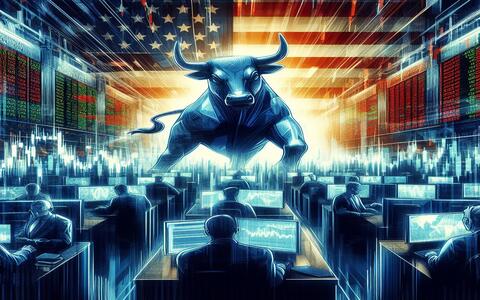
When is it Beneficial to Trade at a Premium to the Futures?
In the dizzying world of finance, where fortunes are made and lost in the blink of an eye, the question of when to trade at a premium to the futures looms large. Like a mischievous imp, it dances around investors, whispering sweet nothings and tempting them with untold riches. But as with all things in life, timing is everything, and catching this elusive sprite requires a keen understanding of its hidden lair.
When is a Premium Beneficial?
A premium, in this context, refers to the difference between the current market price of an asset and the price at which it is expected to trade in the future. When you trade at a premium to the futures, you are essentially betting that the asset’s price will rise above its future value. This can be a lucrative strategy if you have a keen eye for predicting market trends and a stomach for risk.
Should You Always Trade at a Premium?
Of course, not all premiums are created equal. Whether trading at a premium is beneficial depends on a myriad of factors, including the volatility of the asset, the liquidity of the market, and your own risk tolerance. If the asset is highly volatile, the premium may be too high to justify the potential return. Similarly, if the market is illiquid, you may struggle to find buyers or sellers at your desired price.
Is it More Beneficial to Trade at a Premium During a Bull Market?
Historical data suggests that trading at a premium can be particularly beneficial during bull markets. When the overall market is rising, investors are more likely to be optimistic about the future and willing to pay a premium for assets they believe will continue to appreciate. However, it’s important to remember that bull markets don’t last forever, and a sudden market downturn can quickly erode any profits you’ve made from trading at a premium.
How Can You Identify a Good Premium?
Identifying a good premium is like finding a needle in a haystack, but there are some telltale signs to look for. A tight bid-ask spread, high trading volume, and a positive historical track record can all indicate a premium that is worth considering. However, it’s always wise to conduct your own due diligence and consult with a financial advisor before making any trades.
What are the Risks of Trading at a Premium?
As with any investment strategy, trading at a premium carries its own set of risks. The most obvious risk is that the asset’s price may not rise as expected, leaving you with a loss. Additionally, holding assets at a premium can tie up a significant amount of capital, limiting your ability to invest in other opportunities.
Example Table: Comparing Premium and Discount Trading Strategies
| Trading Strategy | Premium | Example |
|---|---|---|
| Buy-and-hold | Purchase an asset at a price below its future value | Buying Apple stock at $100 per share in 2010, when it was expected to trade at $120 per share in 2015 |
| Short-sell | Sell an asset at a price above its future value | Selling Tesla stock at $200 per share in 2020, when it was expected to trade at $180 per share in 2021 |
Call to Action
Ladies and gentlemen, boys and girls, the floor is now yours! Whether you’re a seasoned financial ninja or a crypto-curious newbie, let me know your thoughts on trading at a premium to the futures. Do you find it to be a fool’s errand or a golden opportunity? Share your insights, ask questions, and let’s navigate this financial maze together.






